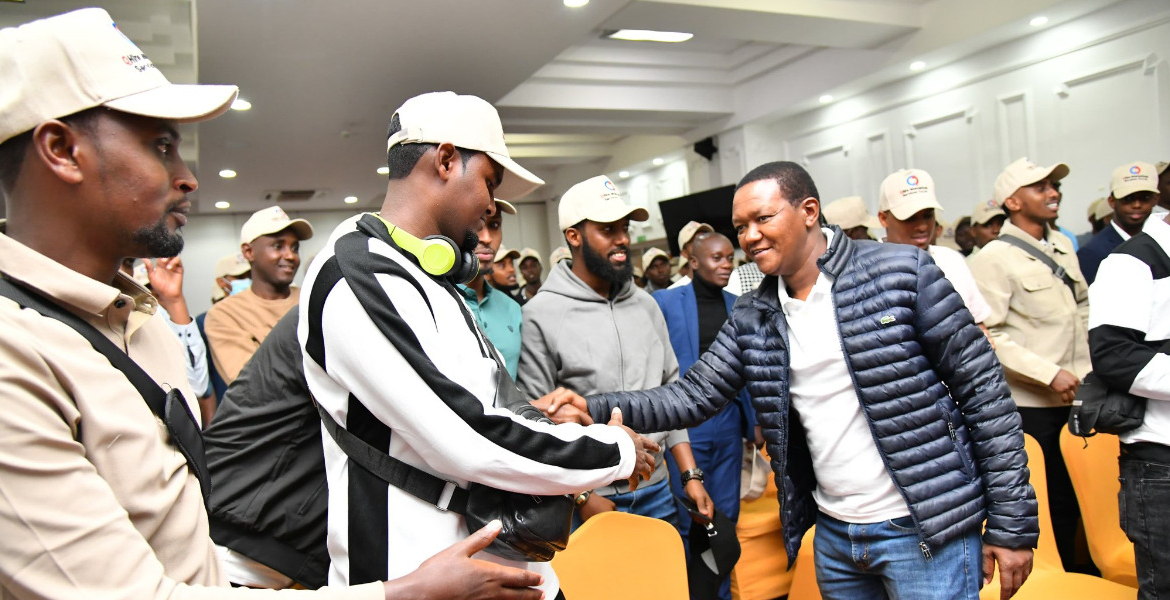Why Young Kenyans in Coast Are Opting Out of State-Sponsored UAE Jobs

A government initiative designed to address youth unemployment by placing Kenyans in jobs in the United Arab Emirates (UAE) is facing a wave of criticism as beneficiaries report unforeseen costs and bureaucratic challenges.
The "Kazi Majuu" (Jobs Abroad) program, spearheaded by the Ministry of Labour and Social Protection, aims to deploy over 4,000 Kenyans to the UAE, offering opportunities across various sectors. However, emerging complaints suggest that the program's implementation is marred by a lack of transparency and unexpected financial obligations, leading to widespread disillusionment among potential recruits.
Mbwana Ali, a 26-year-old from Kwale County, embodies this frustration. He views the program as a pathway to financial stability, planning to work as a cleaner in Dubai to save money and establish an agribusiness back home.
"I had planned to work there for five to eight years, save enough money, and come back to grow my agribusiness," Ali explains.
However, his aspirations have been jeopardised by unexpected financial demands. Just before his scheduled trip to Nairobi for processing, Ali was instructed by the recruiting agency to pay Sh30,000 for mandatory medical tests and document attestation, costs he believes were to be covered by the government.
"Where would I even get that kind of money? I applied because we were told the government would handle these costs through the Youth Fund, then deduct the amount from our salaries," Ali laments.
Unable to raise the funds, he was forced to abandon his plans indefinitely. Ali's situation is not unique, as hundreds of young job seekers in Kwale, Kilifi, and other coastal counties are turning down job offers due to these unanticipated expenses and bureaucratic obstacles. The Kazi Majuu initiative was initially promoted as a transformative solution to youth unemployment.
However, the emerging concerns over transparency and hidden costs have raised doubts about its actual impact. David Mwangi, 27, faced even greater financial strain. Selected for a construction job in January, Mwangi was required to pay Sh130,000 for a visa, along with Sh7,500 for medical tests and Sh6,000 for document attestation.
"We were assured that the government would provide soft loans through KCB Bank to cover these costs, which would then be deducted from our salaries," Mwangi says.
But when he approached the bank, he was informed that a loan required collateral, such as a guarantor or a title deed. In desperation, Mwangi took out a personal loan in April to cover the visa cost. Two months later, his visa status remains 'in process', and his attempts to get clarification from the recruiting agency have been unsuccessful.
"I don't know whether to wait or cut my losses," he says.
Zawadi International, a recruiting agency involved in the initiative, defended the Sh30,000 medical fee. According to a representative who requested anonymity, the government only covers visas and airfare. The official emphasises that medical screening is necessary and that someone must bear the costs if an applicant is deemed unfit for work. Labour Cabinet Secretary Alfred Mutua has refuted claims of deception, arguing that some applicants are unwilling to take personal responsibility for certain aspects of the process.
"People apply for the Youth Fund, qualify, and are picked. Now they're just waiting for the offer letter," Dr. Mutua explains. "The Youth Fund is hesitant to pay for medical checkups because if someone fails, the money is lost. Applicants should be prepared to cover medical expenses."
Mutua challenges job seekers' affordability complaints, stating, "You're being offered a Sh200,000 salary, yet you claim you can't raise Sh15,000? Then you are not serious. We don't want you."
However, his remarks contradict earlier assurances of comprehensive financial support, leaving many applicants feeling deceived. Youth leaders and activists are now demanding clarity from the government regarding recruitment and financial obligations. Mbwana Omar, president of the Kwale Youth Assembly, condemns the shifting financial requirements, stating that many applicants were misled into believing the government would cover all travel and medical costs.
"We've received widespread complaints about the Sh30,000 fee, which contradicts the initial promise that the Youth Fund would cater for both travel and medical expenses," Omar says.
He adds that he had reached out to Msambweni MP Feisal Bader for clarification, but the MP's office has not confirmed the fee's legitimacy. Omar advises job seekers to pause their travel plans to Nairobi and refrain from making any payments until further guidance is issued.
"Your safety and financial security must come first," he emphasises.
While young Kenyans are eager to seize overseas opportunities, unclear financial expectations and logistical delays have dampened morale. Daniel Jefwa, a recruit from Kilifi County, urges the Ministry of Labour to provide a clear and consistent framework for participants.








Add new comment